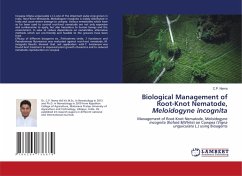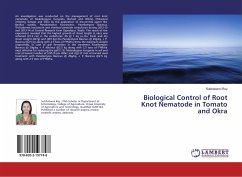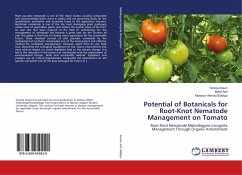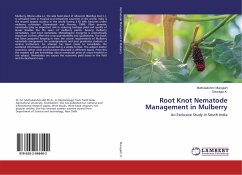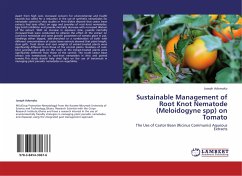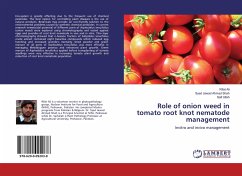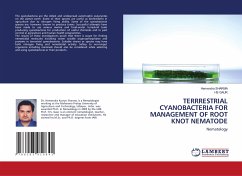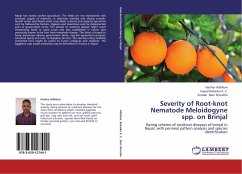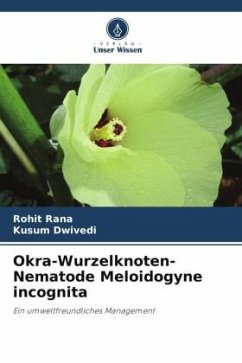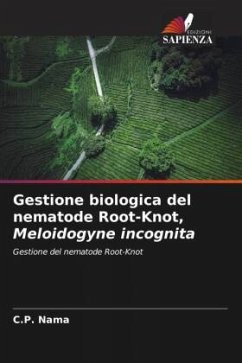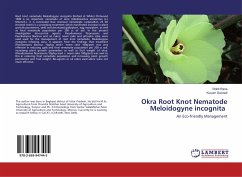
Okra Root Knot Nematode Meloidogyne incognita
An Eco-friendly Management
Versandkostenfrei!
Versandfertig in 6-10 Tagen
24,99 €
inkl. MwSt.

PAYBACK Punkte
12 °P sammeln!
Root knot nematode Meloidogyne incognita (Kofoid et White) Chitwood 1949 is an important nematode of okra (Abelmoschus esculentus (L.) Moench.). it is concluded that chemical nematicide carbosulfan 25 SD (treated check) is a promising treatment which manifested increase in plant growth parameters, yield and decreased galls/plant, egg mass/plant, as well as final nematode population per 200 cc of soil. In the present investigation bio-control agents; Pseudomonas fluorescens and Paecilomyces lilacinus and oil cakes; neem cake and jatropha cake were used used for the management of root knot nemat...
Root knot nematode Meloidogyne incognita (Kofoid et White) Chitwood 1949 is an important nematode of okra (Abelmoschus esculentus (L.) Moench.). it is concluded that chemical nematicide carbosulfan 25 SD (treated check) is a promising treatment which manifested increase in plant growth parameters, yield and decreased galls/plant, egg mass/plant, as well as final nematode population per 200 cc of soil. In the present investigation bio-control agents; Pseudomonas fluorescens and Paecilomyces lilacinus and oil cakes; neem cake and jatropha cake were used used for the management of root knot nematode, Meloidogyne incognita infecting okra. It appears from the findings that treatment (Paecilomyces lilacinus 10g/kg seed+ neem cake 100g/pot) was very effective in reducing galls and final nematode population per 200 cc soil, increasing plant growth parameters as well as fruit weight of okra. (Pseudomonas fluorescens 10g/kg seed + neem cake 100g/pot) was next to this in reducing final nematode population and increasing plant growth parameters and fruit weight. Bio-agents or oil cakes used alone were not much effective.



